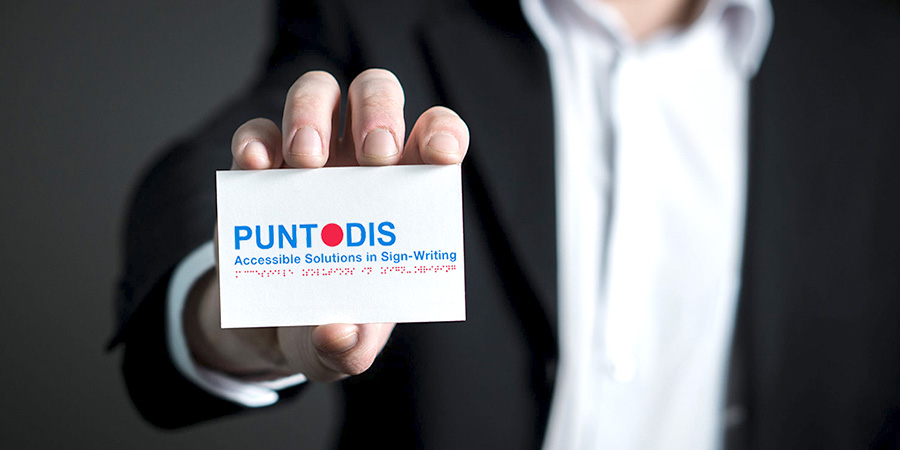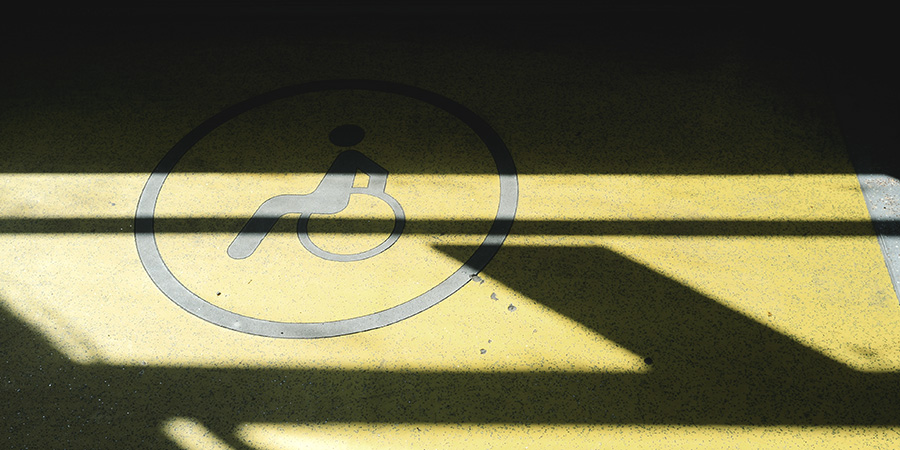- Most viewed
- Last viewed
“When designing, architects have to understand that there is no perfect person and that our needs will change”
Almost twenty years ago, Basque businessman Jon Imanol Ibarra understood the need to fill a gap in a sector that, at the time, was beginning to attract interest, especially in the public sphere: accessibility and universal design. Thus Puntodis was founded, a pioneering company at a state level, specialising in accessibility services in communication and the aim of which is for all people to develop in any environment independently and access all resources with the same ease.
Puntodis has just renewed its commitment to our Postgraduate Degree in Accessibility: Universal Design Specialist at UIC Barcelona for the eighth year running. We talked with Jon Imanol Ibarra to review his business trajectory and learn about the central role accessibility has taken on in the world of architecture and urban planning.
1. Puntodis was founded in 2004 as one of the first - if not the first - companies in Spain to offer services related to accessibility in communication. How would you say that the situation in accessibility has changed over the past 20 years?
The change has been gradual and I would say that to this day the big difference between the end of the 90s and the first decade of the 2000s was awareness. A small group of professionals in Spain realised the great challenge ahead of us and put themselves to work on a transformation involving explaining that people live more every day, that our cities are not adapted for this, that accessibility is not just a matter of wheelchairs. Among these professionals I would certainly include Dr Enrique Rovira-Beleta. In addition, the legislation is beginning to cover what needs to be changed is the built environment so that it can be used equally by all kinds of people, regardless of their ability.
2. How did your business vocation arise from the issue of accessibility?
Prior to setting up Puntodis, I began to be interested in accessibility and, along with my former company ROTULOS GETXO, we launched some signalling projects for all, such as that of the Basque Government's headquarters in Lakua (Vitoria Gazteiz). I suppose we were young and we soon realised that there was a great opportunity in this area, still very difficult to carry out because of the lack of a future vision, and above all, lack of awareness in public administration and even less so in the private sector.
3. Your team today is made up of experts trained in the field of design for all. Is there a future in this sector for professional profiles like an architect?
Of course. The architect is the great conductor of the orchestra. Without it there will be no transformation of the environments in which we move. It is the architect's job to find ourselves at ease in them and for this reason, when we design, we have to think that there is no perfect person and that throughout life our needs will change.

4. Is there increasing awareness of the need to improve the quality of life of people with functional diversity? Is it more difficult to raise awareness with a politician or an entrepreneur?
I would say that in the case of politics this is already clear. I think that all the political parties have a duty to implement the legislation we have created which, in Spain, is really very advanced. The private sector is another thing. My experience tells me that it only focuses on profit. Entrepreneurs need to understand that it is good for their business and there is still a long way to go.
5. Is there coordination between associations of people with functional diversity and political and social actors in developing improved accessibility?
Not at all, but I also recognise that it is very difficult. Organisations are highly atomised and local. Everyone has a mission with their partners and knows their problems well, so coordinating with others becomes complicated. I know many associations that, even though they are committed to the same purpose, do not end up agreeing with each other. In order to provide comprehensive solutions and improve our environments, products and services, it is necessary to provide good training and solutions that do not discriminate against anyone.
6. What would you say – along the lines of the services and products your company offers – has been the most important progress towards universal accessibility in recent years?
On the one hand, I would say that the greatest progress is being made by the ease of access to the Internet, the remarkable improvement to the service thanks to the common European market and the disappearance of roaming costs. The ability to access digital information in addition to other more physical solutions is providing progress that help you better sense and understand any information you may need. In addition, the data we get from using technology allows us to make better decisions. The only thing we are lacking - and we are focusing greatly on this area - is for all these tools be accessible to all.
7. In addition to the important advisory work it provides when adapting a given space to universal accessibility criteria, Puntodis has developed its own patents that have contributed to improvements in the daily lives of thousands of people. What value, for example, does it have that a public space is accessible to all people regardless of their physical or sensorial limitations?
The value is infinitely positive. The limitations of the development and understanding of these public spaces are due to the fact they are not adapted, so our job is to turn this situation around. Let me give an example: If Stephen Hawking, the famous astrophysicist who left us with an incalculable scientific legacy which developed almost entirely alongside his disease – amyotrophic lateral sclerosis – if he had been born a century earlier, we would most likely have cut him off and labelled him as anything other than what he proved to be. Technology and its adaptation to accessibility has been very useful to all of us.

8. Is there a long way to go in the area of universal accessibility? How does the progressive ageing of society affect this?
It affects everything because it changes the way we see things in that sense. From believing that it is only a few who suffer from a disability to realising that it can happen to us in a temporary way or simply be part of our pathway in life. Healthcare has made us live for many years and we will want our environments, products and services to be a possibility we hold within our reach. Accessibility and design for all is here to stay.
9. Throughout your career, what has been your most satisfying or most proud moment or project?
I could not choose just one, there are already quite a few because each of them adds to the one that came before it The most satisfying aspect is my day to day, because I am lucky to always have a reason for improvement.
However, this profession has given me the opportunity to work in many emblematic places. For example, I remember the Universal Exhibition of 2008 in Zaragoza, and the guidance provided by Dr Enrique Rovira-Beleta’s office for an environment that was going to receive thousands of people from all over the world and in which we had the opportunity to take part. Nor should I neglect to mention other projects, such as those developed for the facilities of the Moncloa complex, in the Ministry of the Presidency, the headquarters of IMSERSO in Madrid or the Complutense University in Madrid.
10. For eight years, Puntodis has maintained its commitment to UIC Barcelona's Postgraduate Degree in Accessibility: Universal Design Specialist. What is your opinion about the fact there is a higher education programme being taught that is aimed at future experts in universal accessibility?
Knowledge in this area, as in every area, is fundamental. UIC Barcelona's Postgraduate Degree in Accessibility: Universal Design Specialist has received great international recognition and that is why Puntodis's commitment makes us all very proud. We also think that future experts will most likely be good to work with. Accessibility is a cross-disciplinary issue and cooperation is required in order to make the most of projects.
11. Why do you think the UIC Barcelona School of Architecture is the only school of architecture in Spain that teaches accessibility as a compulsory subject?
Of course this indicates the importance that has been placed on this area and its real importance as well. Right now it stands out, although I think other schools and faculties will eventually incorporate accessibility into their curricula.
12. Do you think architects and, in general, space design professionals are sufficiently aware of this reality?
Little by little we are progressing. If they are not now they will be, there is no other option. Either they become aware of this issue or their projects will not even be in line with the new legislation that is already in place and which provides for universal accessibility in all fields, in one case, and most importantly covers the field of building in the other case.